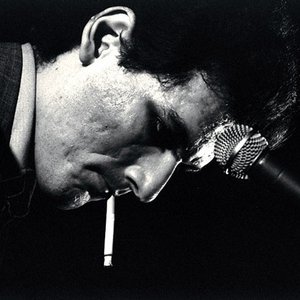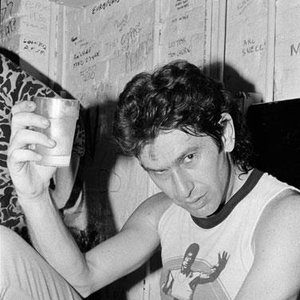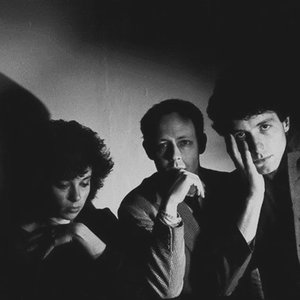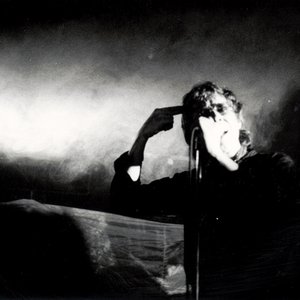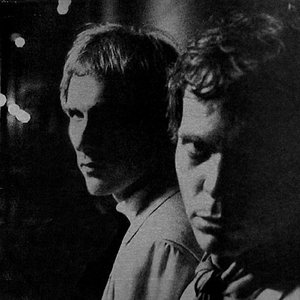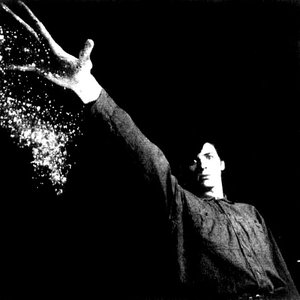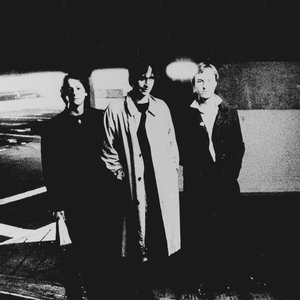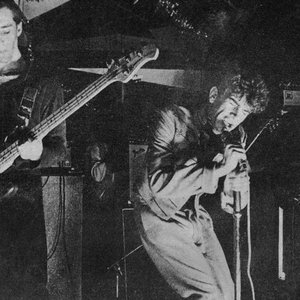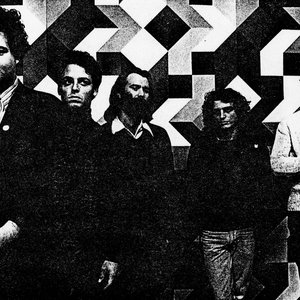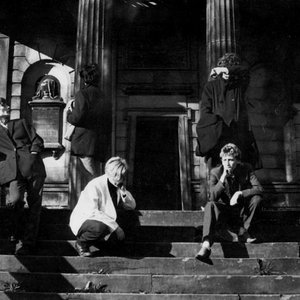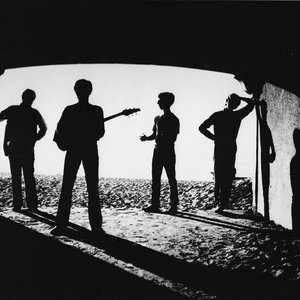Biography
-
Years Active
1977 – present (47 years)
-
Founded In
San Francisco, California, United States
-
Members
- Blaine L. Reininger (1977 – present)
- Bruce Geduldig
- Greg Langston
- Luc van Lieshout
- Paul Zahl
Tuxedomoon is an experimental avant-garde/post-punk/new wave group formed in San Francisco, California consisting of core members Blaine L. Reininger, Steven Brown and Peter Principle.
Formed in 1977 by multi-instrumentalists Reininger and Brown, then two students of electronic music at San Francisco City College, with technical assistance from video artist Tommy Tadlock, Tuxedomoon started playing salons and accompanying performances by The Angels of Light, a San Francisco based, radical theater troup. Brown's connections to local theater gave the band access to vocalists Gregory Cruikshank, Victoria Lowe, and, most frequently, Winston Tong. The band gained some level of recognition in 1978 when they opened for Devo. Michael Belfer, (guitarist), and Paul Zahl, (drummer) joined the band in time to help with the group's first EP, No Tears. Lowe left prior to the album's release in 1978. Soon afterward, Tong and Belfer left the group temporarily, and bassist Peter Principle joined the lineup. In 1979, the group signed to The Residents' Ralph Records, with whom they recorded their next two albums, Half-Mute in 1980 and Desire in 1981, after which the band relocated to Rotterdam for a small time and moved on to Brussels, believing their sound better fit the electronic scene in Europe.
The band soon created the score for a ballet by Maurice Bejart, which was released in 1982 as Divine. In 1983 Reininger left the group in order to pursue a solo career, and trumpeter Luc Van Lieshout joined. In 1985 Tuxedomoon had its largest success commercially with the international release of Holy Wars. Tong left the group again soon after its release and was replaced by Ivan Georgiev, who performed on the group's next two albums, 1986's Ship of Fools and 1987's You. The band remained inactive through most of the 1990s, although never technically broke up. On July 20, 2004 Tuxedomoon, complete again with founder Blaine L. Reininger, released a new studio album, Cabin in the Sky.
Tuxedomoon still perform and record and reside in Europe.
In 2008 Belgian author Isabelle Corbisier published their definitive biography, entitled "Music for Vagabonds - the Tuxedomoon Chronicles": http://www.music-for-vagabonds.com
Stand out tracks:
"everything you want" an early recording, later released on pinheads on the move
"no tears", from the 12" of the same name, available on desire
"special treatment for the family man" from the Scream With A View 12", and later on the Half-Mute/Scream With A View compilation
"loneliness" from half-mute
"again" from desire
"music #2" on suite en sous-sol
"bonjour tristesse" and "in a manner of speaking" from holy wars
"lowlands tone poem" from ship of fools
"the stranger" from pinheads on the move and various other releases
"diario di un egoista" from cabin in the sky
Tuxedomoon sites:
Official Tuxedomoon page (offline)
Blaine L. Reininger's Tuxedomoon page
Blain L. Reininger's own page
Tuxedomoon at Discogs.com
Second version:
Cult legends Tuxedomoon are a welcome exception in today's over-formatted musical world.
Born in 1977, in the heady atmosphere of San Francisco’s postpunk golden age, the band soon became a central part of New York's No Wave scene (as documented in the recent "Downtown 81" film, centered around Jean Michel Basquiat and featuring performances by Blondie, James Chance, DNA and Tuxedomoon). "No Tears", their 2nd single (1979), has remained an electro punk club classic to this day. The band went on to sign to The Residents' Ralph Records, and released two seminal albums, "Half Mute" (1980) and "Desire" (1981) which soon got them overseas exposure.
Fleeing Reagan's America, Tuxedomoon moved to Europe in the early '80s, and stayed there throughout the decade. Although their ability to crystallize a certain dark and romantic zeitgeist quickly turned them into one of the most influential bands around, their music transcended all genres and included impossibly wide parameters –rock, electronics, minimal music, classical, jazz, Gypsy music and pop were all simultaneously consumed and transmutated into a quasi-prescient blend.
After releasing a string of albums on CramBoy (the imprint they set up with Brussels-based label Crammed Discs), the band stopped recording together in 1988, and the various members pursued solo careers, becoming as disparate geographically as sonically, with Steven Brown (vocals, keyboard & saxophone) living in Mexico, Peter Principle (bass, electronics) in New York, Blaine L. Reininger (vocals, violin, guitar) in Greece, and Luc Van Lieshout (trumpet) & Bruce Geduldig (films/visuals) in Brussels.
Many years later, Tuxedomoon got back together to write and record the awesome "Cabin In The Sky" album (2004), which found them in absolute top form, as romantic, rebellious and boundlessly imaginative as they ever were. "Cabin" featured contributions by a carefully hand-picked selection of guests such as Tarwater, Tortoise's John McEntire, Nouvelle Vague's Marc Collin and DJ Hell.
Shortly after finishing "Cabin In The Sky", Tuxedomoon traveled back to San Francisco, the band's birthplace, in order to start writing material for their next album. But the local atmosphere had unexpected effects on them, and drove them to record a series of "spontaneous compositions" (as Mingus would have put it) instead, which soon formed the basis of a side project entitled "Bardo Hotel Soundtrack" loosely connected to Brion Gysin’s novel ‘The Bardo Hotel’ set in the Paris hotel where he and William Burroughs invented the radical cut-up/fold-in technique.
Both "Cabin…" and "Bardo Hotel…" were warmly welcomed, and a wildly eclectic array of references sprang from the pens of reviewers trying to describe Tuxedomoon's music (Charles Ives, Radiohead, Philip Glass, Miles Davis, German electronica, Tom Waits, John Cage, Kurt Weill, Tortoise, Can…).
If anything, these two recent albums revealed that Tuxedomoon were never connected to a particular period: they had become '80s cult figures simply because that's the period in which they happened to develop and rise to fame… but the band have always been evolving in their own space, and their music is as relevant and fresh today as it was then. An impression to be further strengthened by their latest album "Vapour Trails" (2007), which appealed equally to fans of contemporary cutting-edge avant-rock, electronica and jazz.
To celebrate the band's 30th anniversary, Crammed have released a limited-edition boxed set entitled 77o7 tm, which includes "Vapour Trails" along with a CD of previously-unreleased archives, a DVD containing 160 minutes of rare or previously-unreleased videos, and a live CD recorded in early 2007.
An Abridged Tuxedomoon Discography
2007 77o7 tm (the 30th Anniversary box)
2007 Vapour Trails | CramBoy
2006 Bardo Hotel Soundtrack | CramBoy
2004 Cabin In The Sky | CramBoy
2003 No Tears/What Use: Remixes & Originals | International Deejay Gigolo
2002 Live In St. Petersburg | Neo-Acustica
1992 Solve Et Coagula (Greatest Hits) | CramBoy
1991 The Ghost Sonata | LTM (reissued on CramBoy)
1988 Ten Years In One Night | Play Boy
1987 You | CramBoy
1987 Suite En Sous-Sol/Time To Lose/Short Stories | CramBoy
1987 Pinheads On The Move | CramBoy
1986 Ship Of Fools | CramBoy
1985 Holy Wars | CramBoy
1982 Divine | Operation Twilight (reissued on CramBoy)
1981 Desire | Ralph (reissued on CramBoy)
1980 Half Mute | Ralph (reissued on CramBoy)
Artist descriptions on Last.fm are editable by everyone. Feel free to contribute!
All user-contributed text on this page is available under the Creative Commons Attribution-ShareAlike License; additional terms may apply.

